Today's guest in our interview segment is known by practically everyone in the tattoo industry.
Over the past 10 years, Rinat Mingazdinov (also known as @rinattattarin) has turned his passion for tattoo art into a true profession, becoming a recognized master and mentor to many popular tattoo artists today.
Continual skill improvement and unwavering hard work have earned him well-deserved recognition in the industry. He holds 40 awards from the most prestigious tattoo conventions, affirming his exceptional expertise and mastery.
What were you doing before tattooing? Why did you decide to become a tattoo artist?
- Hello, everyone. I got into this topic a long time ago, back in 2002, when my buddy and I decided to experiment, and we ended up with a terrible tattoo. But the process itself hooked me, even though it was all done in a garage with a homemade machine. Before that, I was studying in school and working as a warehouse loader. Then, I had to relocate from the warehouse to a more comfortable place where I could tattoo at night. I got a job as a guard in a barber shop from the 2000s, which was near a punk bar called "Limonka," where I could find clients for "experiments." Soon, I realized that tattooing was the only thing I wanted to do.
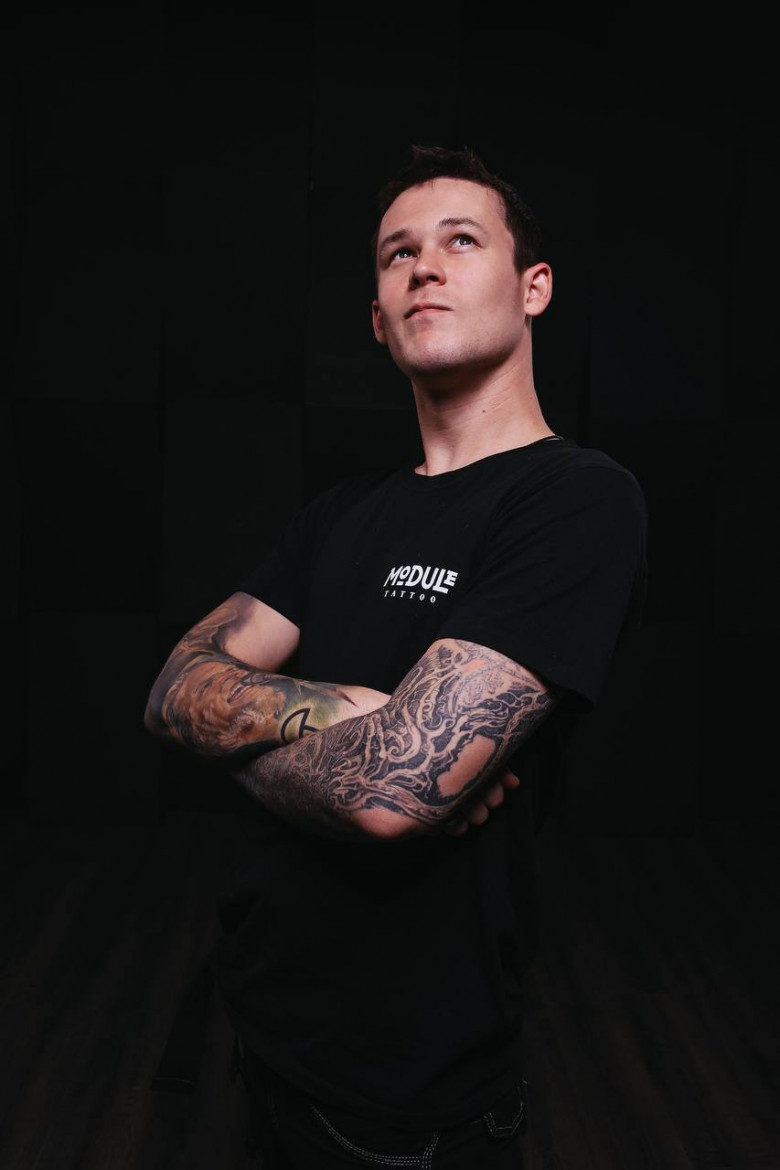
How did your career begin? Did you face any challenges along the way? Who was your mentor?
- In 2002, the difficulty was that there was almost no information available. The internet, as we know it today, didn't exist yet, so it was a complete mess. Additionally, I was born in Tomsk, where tattoos were practically non-existent at that time. There was one guy who had slightly more experience than me at the time, so I went to him to pick his brain. Sanya "Gorshok" explained a few things to me - the basics, like how to sharpen a needle. Later, we learned together how to solder needles and deal with other challenges of working with induction tattoo machines.
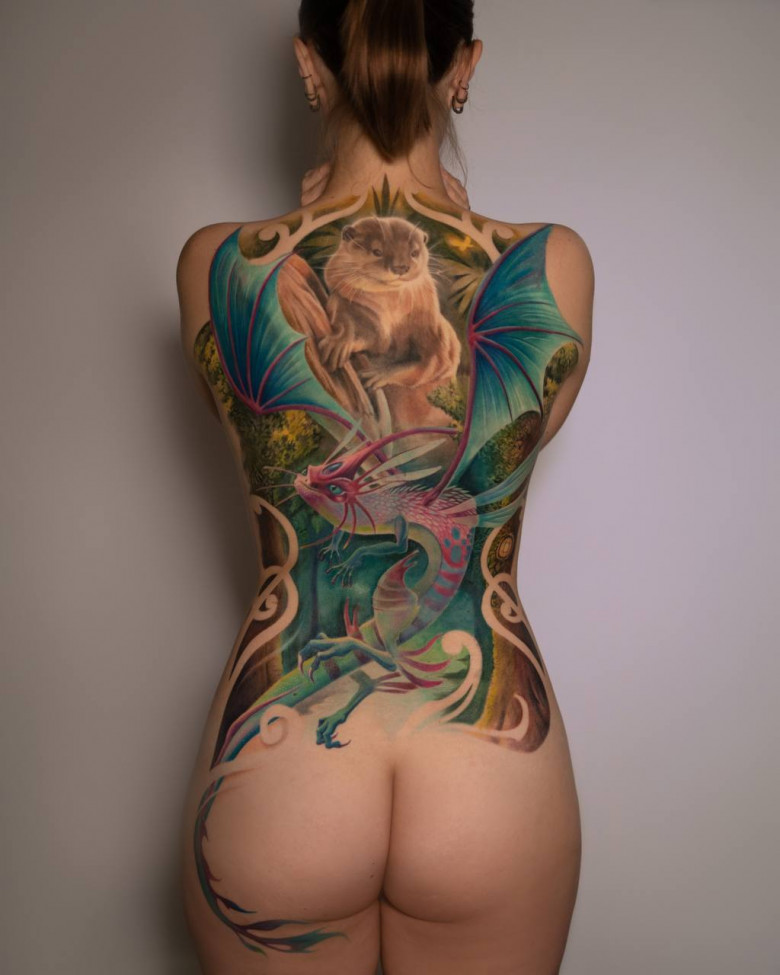
Now you are a teacher yourself. We have seen talented artists who have been influenced by you and consider you their foundation in tattooing. How do you feel about that? Has any of your students surpassed you in skill?
- Oh, many people have stood by my side over the years. I'm glad that I had the opportunity to be a mentor to someone on their journey to becoming a tattoo artist. It's hard to say who surpassed me because, to some extent, they all did. I laid the foundation, and they chose their own specialization, just like in school. I explained the basics, introduced them to the tools, shared some tricks, and prepared them for an independent life and career. From there, they developed their skills, and some of them became really good. It's impossible not to be pleased with that. It's nice to realize that I have contributed to the world having a few more great tattoo artists.
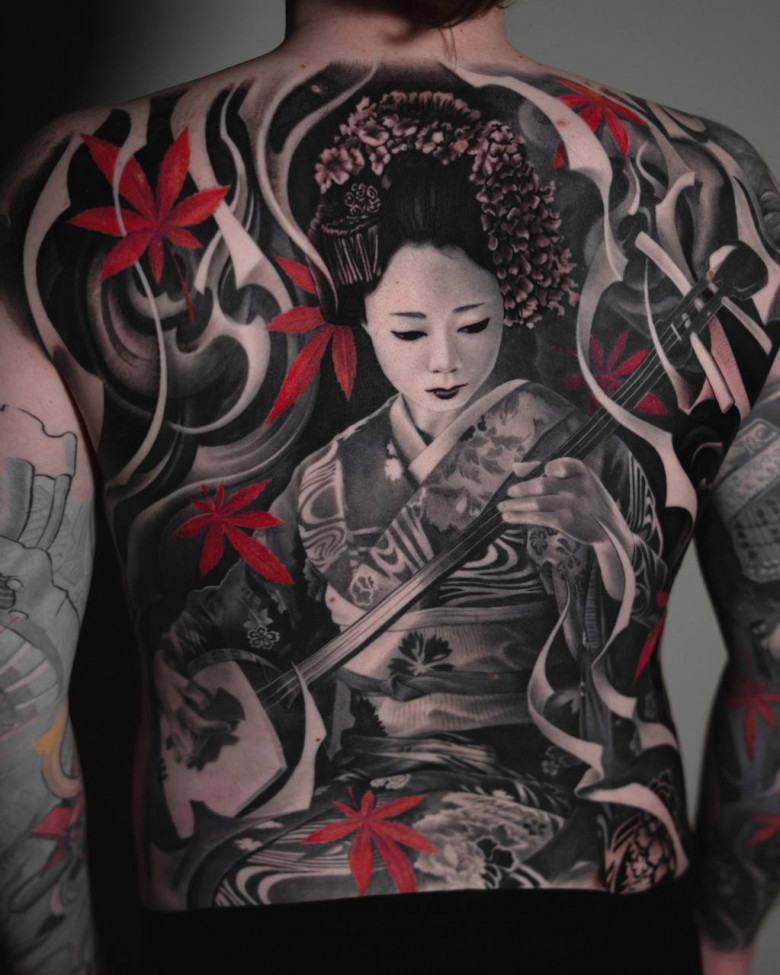
You have an incredible number of collaborations, particularly with @green.vesper. Many of your joint works have received top awards at conventions worldwide. Can you share the secret to the success of your partnership?
- Working in tandem with Tanya is the easiest for me since we have known each other for many years and understand how we work. We don't need to say much to each other during tattooing or get in each other's way. We know what to expect from each other and how to work together in the same spot without disturbing each other. She came to my studio very young and grew up alongside me, starting from scratch to becoming the great tattoo artist she is now. Naturally, we have constantly observed each other. That's why doing a tattoo in tandem is easy; it won't be difficult at all.
In addition to @green.vesper, who else have you collaborated with? Could you share some of the most interesting collaborations you've had?
- Well, there haven't been that many collaborations, about 10. I collaborated with Galya Simakina, Karina Cuba, and Tanya Green.Vesper. With Galya, we did a collaboration that lasted around 17 hours, and we also combined it with a masterclass. It was quite a quest, but we pulled it off. The client was incredibly patient, a real trooper.
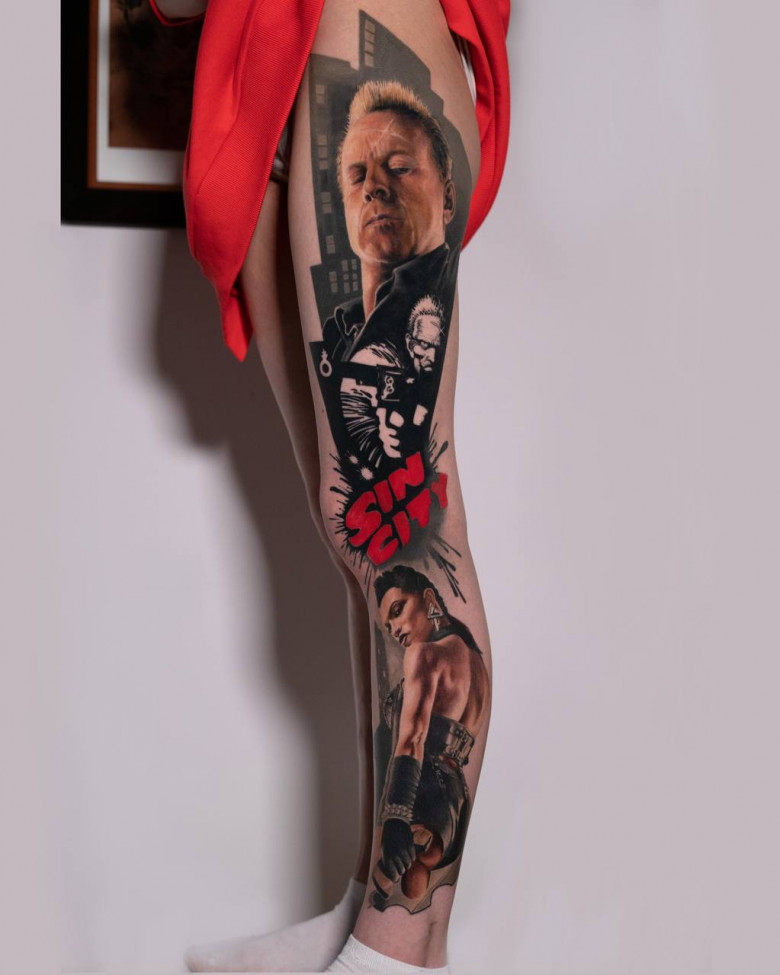
We often see you at conventions, either among the winners or as a judge. Tell us about your experience. How many awards do you have in total? Which convention is the most memorable and significant for you?
- Yes, I love tattoo conventions. I love the spirit of competition, and I enjoy winning prizes. There's no need to hide it. I have around 40 awards from various international festivals, and I have attended nearly 30 conventions. I have also had the privilege of being a judge several times, and it's a cool experience to be invited.
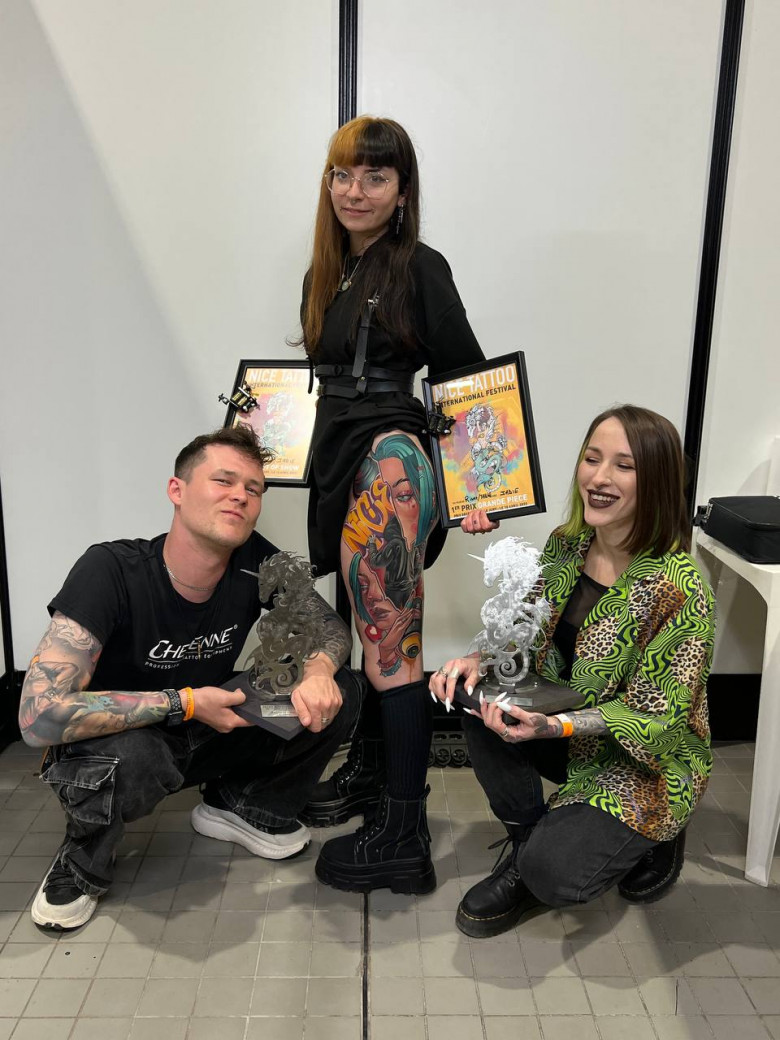
There's nothing more to add. The most important convention for me was Art-Diktatura in Novosibirsk in 2008. It was the first convention that completely changed my perception of tattoos. After that convention, I began to grow as an artist. And perhaps the most important award was from Zwickau, Germany, where they mainly invite talented tattoo artists. Winning a prize there meant that I wasn't that bad. And I won.
Should modern tattoo artists attend conventions and why?
- Of course, you need to at least improve your skills, get to know other artists, and see what's happening in the tattoo industry. It's fascinating if you're passionate about all this hustle. And there are also after-parties. Oh, how I miss the after-parties at the Siberian or Irkutsk tattoo festivals. It's just something unimaginable.
How do you think tattoo culture differs in different countries? And do you have a favorite place on this planet?
- Yes, I understand it's different everywhere, but the main thing is probably to carry and promote your culture to the people around you. The most important thing is that there are tattoo enthusiasts in all the countries I've been to so far. Somewhere more, somewhere less, but tattoos are loved everywhere. Tattooed people attract other tattooed people, and that's how you spread your culture.
As for my favorite place, it's difficult to say, but the first thing that comes to mind is Sheregesh, a mountain ski resort.
Do you have any favorite tattoos, clients, projects, or perhaps some unusual stories in your career?
- Yes, there are many such works. Often, when my idea and the client's desire coincide, and we create an excellent tattoo, I fall in love with it. I still have a few unfinished, very large projects at home, and it's sad. Most likely, I won't finish them anymore, but they would have turned out to be amazing pieces. As for a favorite client, I can make a joke about it. A client should pay, endure, and not complain, and then they have a chance to become a favorite.
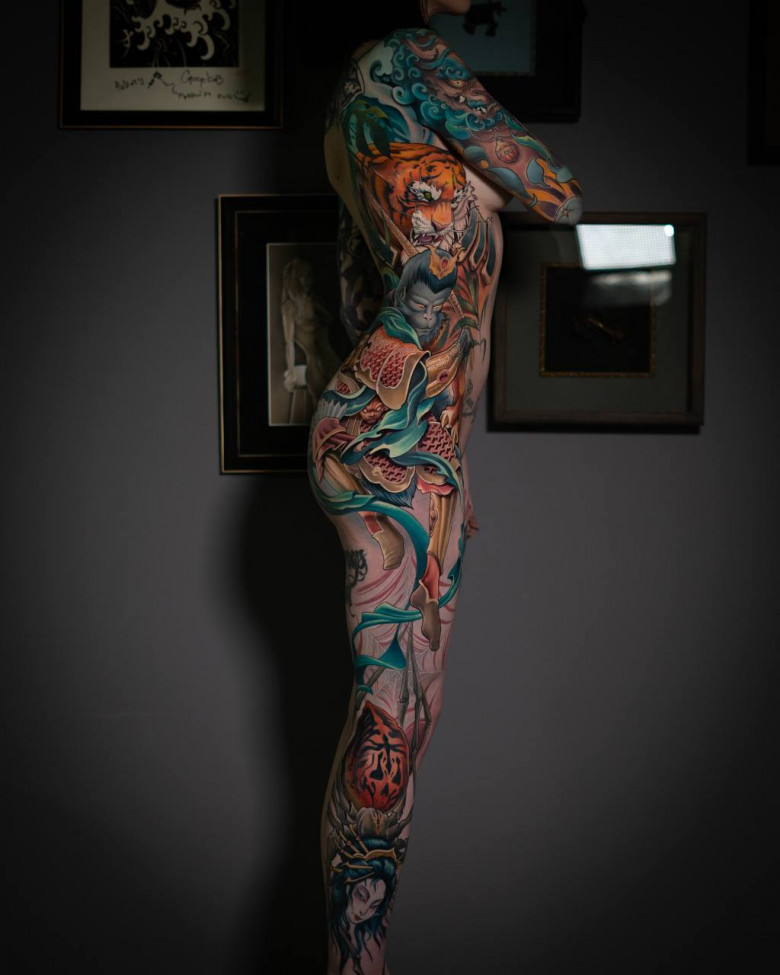
How do you assess your popularity? And in your opinion, what can be used to measure it?
- It's cool. Depending on what you mean by popularity, there are some assholes on Instagram who are much more popular than me, and it's a bit humbling. I'm not popular, but I'm in demand because I'm good at what I do and have achieved certain heights.
You are a participant in several top conventions. How important is it for an artist to be part of a professional team, and what does it personally give you?
- In the beginning, it helped a lot, and now it's just there, existing. It gives me additional connections and invitations to conventions, which, in my opinion, are important. We discussed it earlier. At this stage, it's also possible to gain some privileges, such as access to equipment, materials, and pigments before others. In a way, you become someone like an expert who can influence what happens in the tattoo industry and contribute your expertise, which is highly valued. It's cool, that's all.
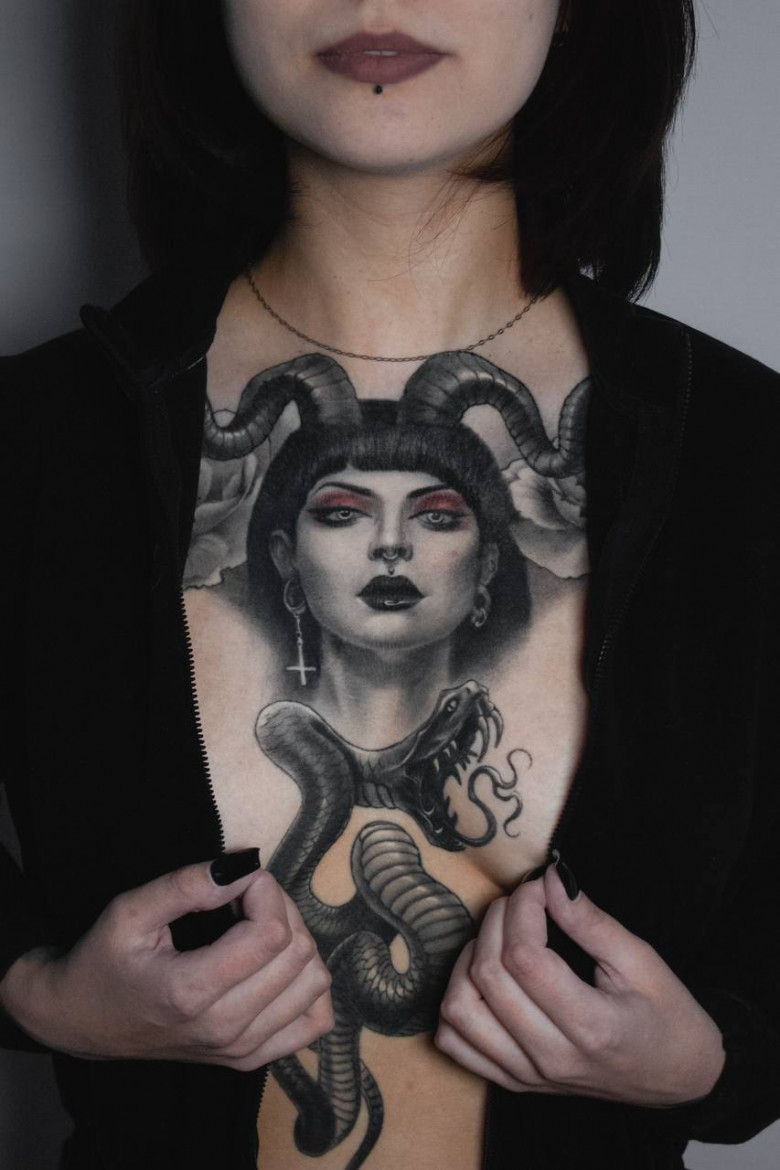
Is tattooing for you art, work, or something else?
- Tattooing is like a hobby or perhaps the luckiest coincidence in my life. Even after so many years, I'm still not tired of it.
In addition to tattooing, you are also involved in body art. Is it the other side of your creativity? And how many of them have you done in total?
- Yeah, body art was something incomprehensible to me. I bought an airbrush, hoping that I would quickly learn to paint my car. I thought I would be great at it. However, it would have taken up so much time. So, I decided to try drawing on skin, and it turned out to be quite interesting. But I'm glad I didn't make a mistake with the car. It would have turned out poorly. Practice is needed in every field.
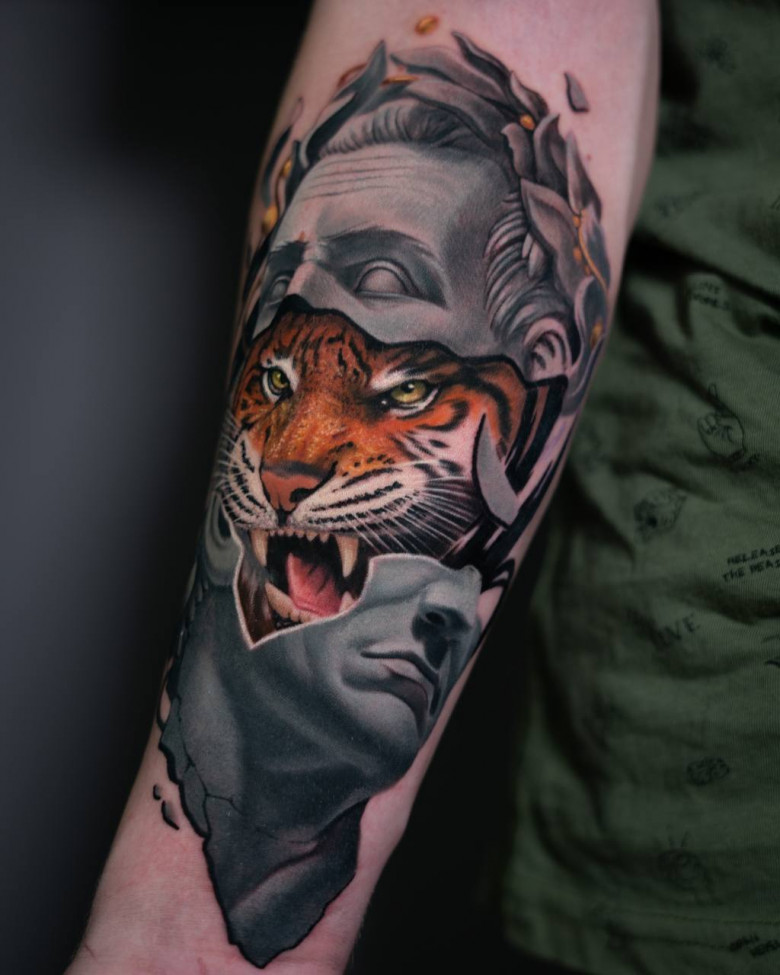
What career goals do you set for yourself?
- I don't like talking about my plans. It feels like making a promise. What if I make a mistake and things don't work out? Then I'll feel like a loser afterwards.
As a teacher, can you share the secret to your success? What should an artist do to replicate and possibly surpass your achievements?
- To love tattoos, possibly to the point of fanaticism, and everything else will come with time. And keep drawing, constantly draw.
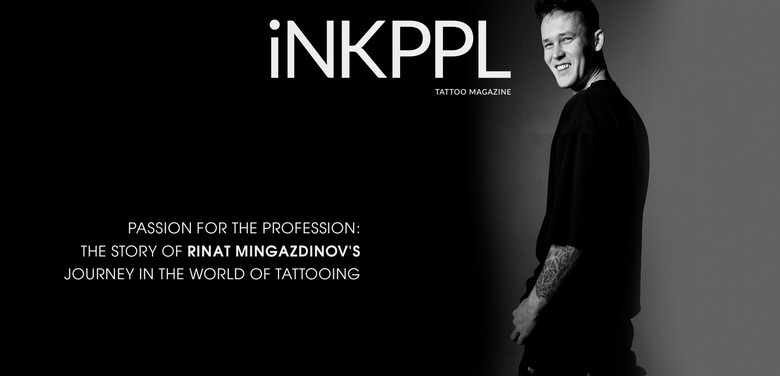

















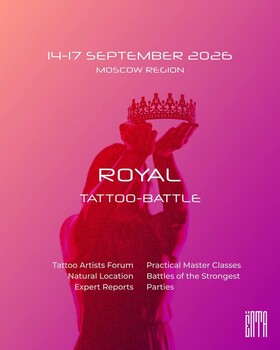
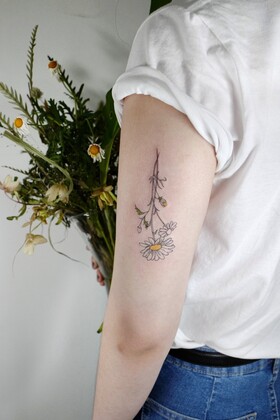
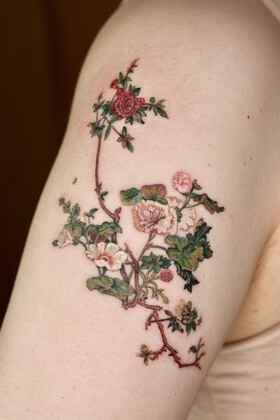
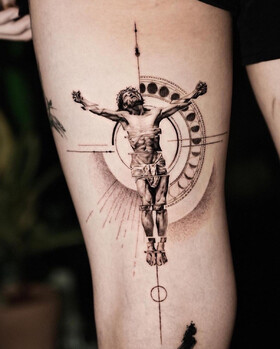
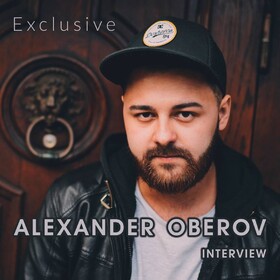
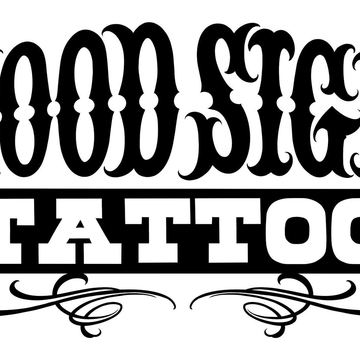
Comments (0)